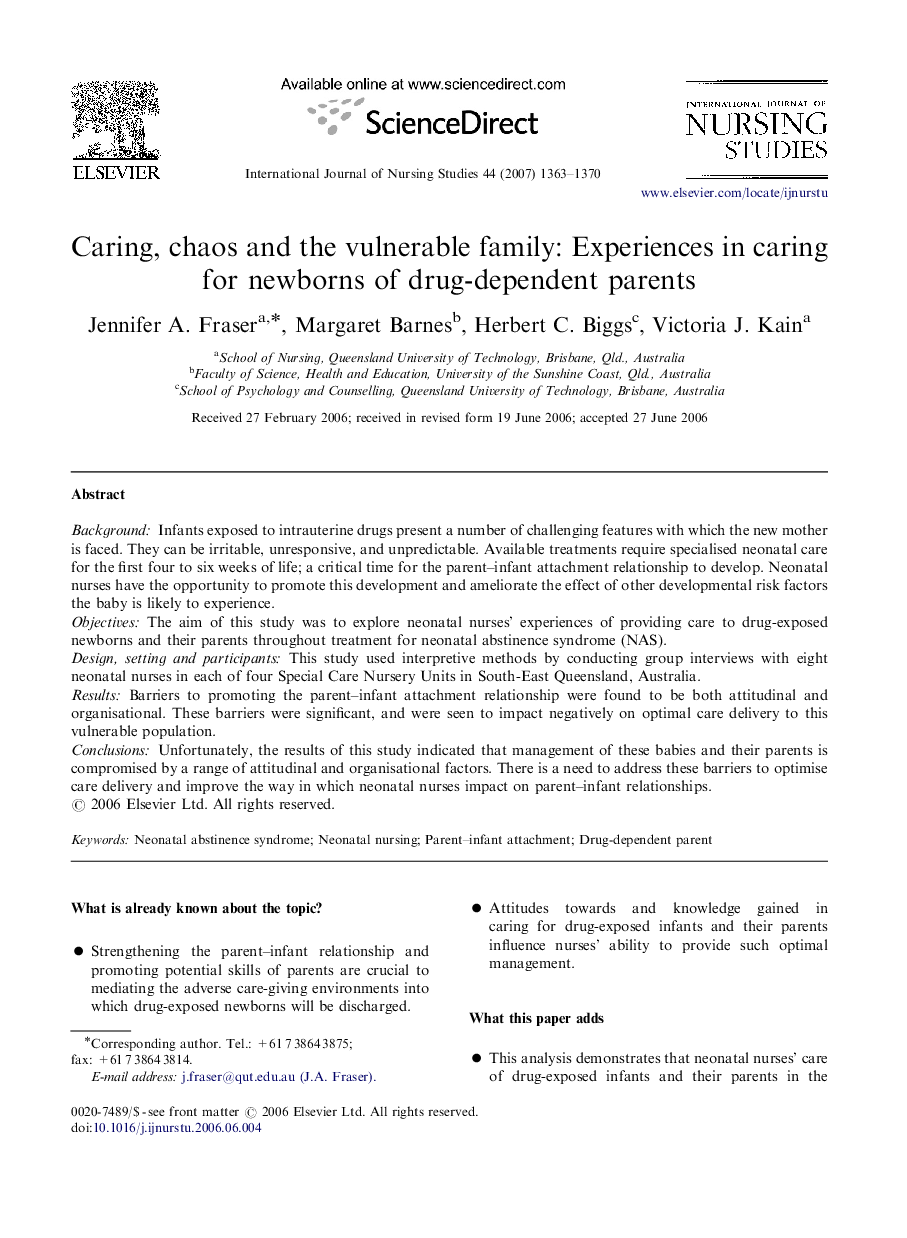| Article ID | Journal | Published Year | Pages | File Type |
|---|---|---|---|---|
| 1077470 | International Journal of Nursing Studies | 2007 | 8 Pages |
BackgroundInfants exposed to intrauterine drugs present a number of challenging features with which the new mother is faced. They can be irritable, unresponsive, and unpredictable. Available treatments require specialised neonatal care for the first four to six weeks of life; a critical time for the parent–infant attachment relationship to develop. Neonatal nurses have the opportunity to promote this development and ameliorate the effect of other developmental risk factors the baby is likely to experience.ObjectivesThe aim of this study was to explore neonatal nurses’ experiences of providing care to drug-exposed newborns and their parents throughout treatment for neonatal abstinence syndrome (NAS).Design, setting and participantsThis study used interpretive methods by conducting group interviews with eight neonatal nurses in each of four Special Care Nursery Units in South-East Queensland, Australia.ResultsBarriers to promoting the parent–infant attachment relationship were found to be both attitudinal and organisational. These barriers were significant, and were seen to impact negatively on optimal care delivery to this vulnerable population.ConclusionsUnfortunately, the results of this study indicated that management of these babies and their parents is compromised by a range of attitudinal and organisational factors. There is a need to address these barriers to optimise care delivery and improve the way in which neonatal nurses impact on parent–infant relationships.
